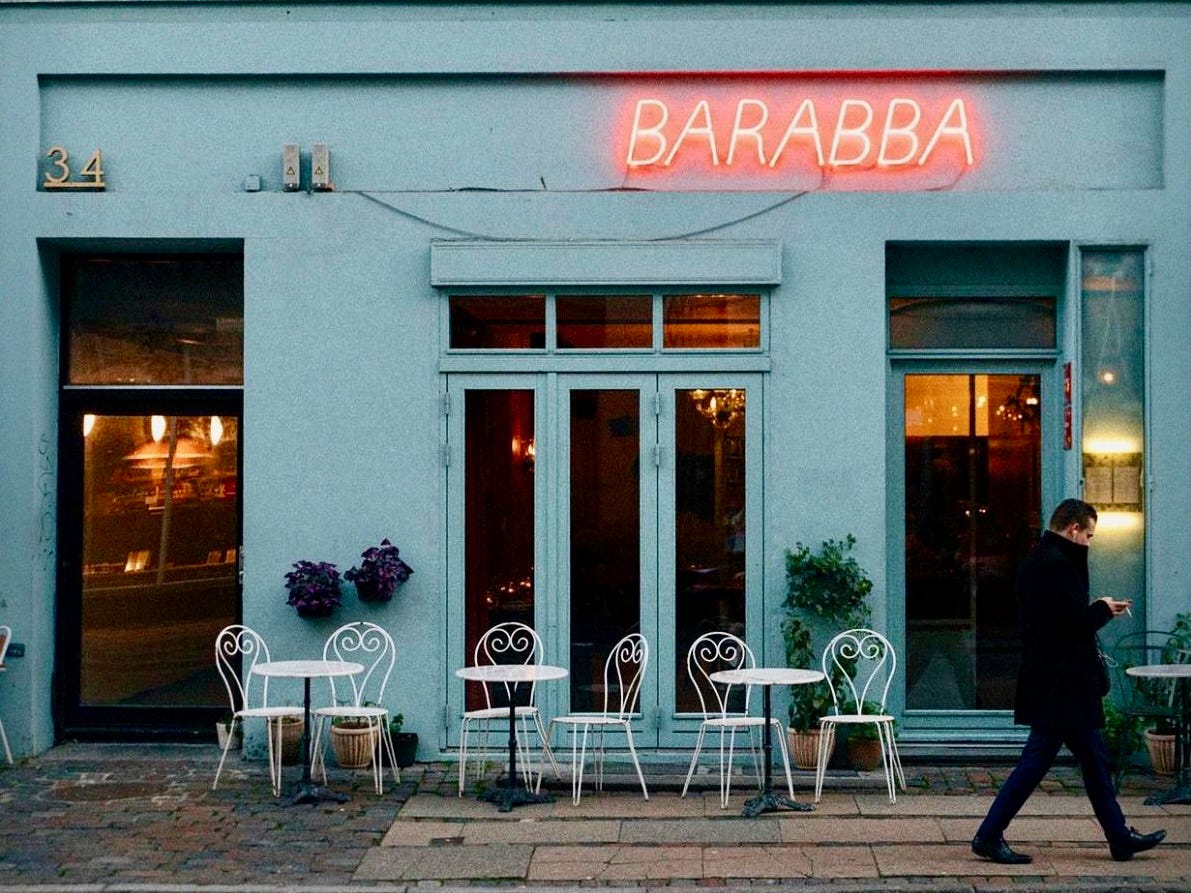Dining on the Wine Trail: Barabba, Copenhagen
An abiding playfulness belies the striking maturity of Riccardo Marcon's beloved post-Italian destination, which illuminates a path beyond caricature for Italian restaurants worldwide.
Visiting downtown Copenhagen’s beloved Italian eatery Barabba in 2024 can recall the later work of the late British designer Vivienne Westwood. Despite an abundance of punk signifiers - red neon signs, low lighting, graffiti, and so forth - one has the sense of arriving long after the party. The restaurant’s louche, rebellious period ended with its cessation of late-night kitchen service during COVID, a vibe shift that has had the effect of foregrounding the kitchen’s serious professional firepower (which was always there), along with co-owner Riccardo Marcon’s daring reconception of Italian restaurateurism.
Barabba’s modified slogan comes right out with it: “We (used to) do it late.”
Today Barabba’s clientele is what you might expect for a stylish luxury restaurant in a city center. On my most recent visit, the restaurant was hosting the renowned, voluble, highly-opinionated Lazio vignaiolo Gianmarco Antonuzzi, who seemed to be finding it a challenge to engage diners in wine conversation. Part of the room was perceptibly there for chefs Giulia Munzi and Giacomo Russo’s divine, inventive pastas first, and the natural winemaker schpiel second.
The dynamic encapsulated why it is so hard for nominally Italian restaurants to rise above a certain, internationally recognized archetype: because the archetype itself is too successful. Outside Italy, it is newsworthy and appealing enough for a restaurant merely to produce excellent pasta, with the result that most Italian restaurants don’t bother embellishing this template with new ideas.
Barabba does. In spades.
Critically, the restaurant’s radical natural wine list, nowadays overseen by Argentine sommelière Juli Carrique, contains no trace of chauvinism. I sense that Marcon, whose own career as a sommelier has largely taken place outside Italy, feels no particular loyalty to, or sense of ownership of, any notion of Italian-ness in wine. Balanced mainly between France and Italy, with forays elsewhere in Europe, Barabba’s wine list reflects the passions of a particular radical natural wine subculture in Copenhagen. Juxtaposed with Barabba’s menu, it becomes revelatory - and not only because there are precious few places on earth where one can enjoy a broad selection of radical natural wines alongside world-class Italian cuisine. (The restaurant’s peers, in this regard, might be Consorzio in Torino, Paris wine bar Passerina, or Milano’s Osteria alla Concorrenza.)
A nominally Italian restaurant matter-of-factly proposing such a breadth of sought-after French natural wine is also a kind of beautiful culture-grab, a gesture that insists that Italian cuisine, too, contains multitudes.





